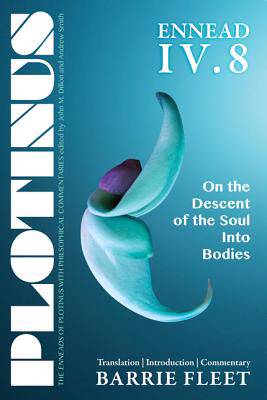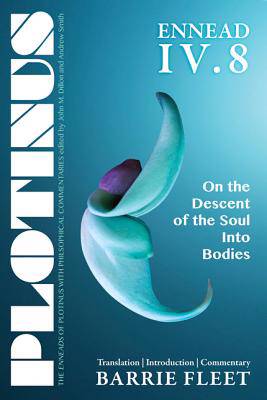
- Afhalen na 1 uur in een winkel met voorraad
- Gratis thuislevering in België vanaf € 30
- Ruim aanbod met 7 miljoen producten
- Afhalen na 1 uur in een winkel met voorraad
- Gratis thuislevering in België vanaf € 30
- Ruim aanbod met 7 miljoen producten
Plotinus Ennead IV.8: On the Descent of the Soul Into Bodies
Translation, with an Introduction, and Commentary
Barrie Fleet, Andrew SmithOmschrijving
Plotinus was much exercised by Plato's doctrines of the soul. In this treatise, at chapter 1 line 27, he talks of "the divine Plato, who has said in many places in his works many noble things about the soul and its arrival here, so that we can hope for some clarity from him. So what does the philosopher say? It is clear that he does not always speak with sufficient consistency for us to make out his intentions with any ease." The issue in this treatise is one that has puzzled students of Plato from ancient to modern times--and is indeed a popular topic for undergraduate essays even today: Why should the philosopher, who has ascended through a long and painful process of dialectic to "assimilation to the divine," ever descend back into the body? Plotinus himself is said by Porphyry to have attained such a state of other-worldly transcendence on at least four occasions during his lifetime, so this was a very real and personal issue for him. In this treatise we see him grappling with it.
Specificaties
Betrokkenen
- Auteur(s):
- Uitgeverij:
Inhoud
- Aantal bladzijden:
- 220
- Taal:
- Engels
- Reeks:
Eigenschappen
- Productcode (EAN):
- 9781930972773
- Verschijningsdatum:
- 6/06/2012
- Uitvoering:
- Paperback
- Formaat:
- Trade paperback (VS)
- Afmetingen:
- 124 mm x 188 mm
- Gewicht:
- 226 g

Alleen bij Standaard Boekhandel
Beoordelingen
We publiceren alleen reviews die voldoen aan de voorwaarden voor reviews. Bekijk onze voorwaarden voor reviews.








